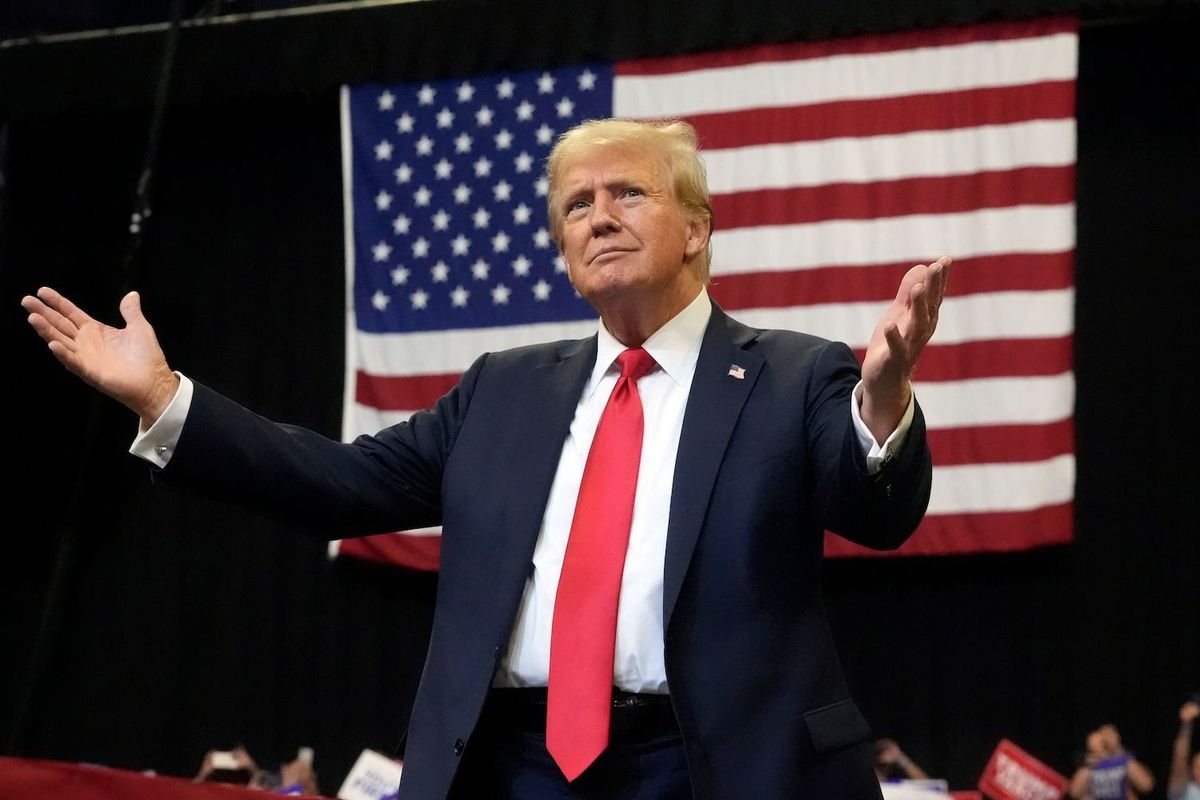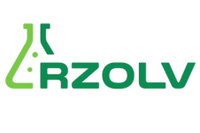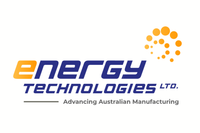Is Trump a Threat to US Electric Vehicle and Battery Supply Chain Growth?
Donald Trump has spoken out against electric vehicles in the past. How would a Trump presidency affect the US EV sector and battery supply chain?

Electric vehicles (EVs) are key to cutting greenhouse gas emissions and fighting climate change, and the Biden administration has implemented subsidies and tax incentives to foster US and North American supply chains.
Nearly US$1 trillion is flowing into various initiatives via the Bipartisan Infrastructure Deal, CHIPS and Science Act and Inflation Reduction Act (IRA). The aim is to boost economic and tech development while supporting clean energy.
More specifically, the Bipartisan Infrastructure Deal invests in upgrading US infrastructure, including roads, bridges, public transit and broadband internet. Meanwhile, the CHIPS and Science Act promotes US semiconductor manufacturing and research to reduce reliance on foreign suppliers, and the IRA focuses on reducing the deficit, lowering drug costs and investing in clean energy to combat climate change.
On the EV side, US$2 billion in funding is being directed toward the Department of Energy to provide grants for domestic production of various types of clean vehicles, from hybrids to hydrogen fuel cell cars. There are also critical minerals manufacturing subsidies and several consumer incentives, including a US$7,500 tax credit on new EV purchases.
In this article
How would a Trump presidency impact the EV sector?
As the US election approaches, with Republican candidate Donald Trump set to square off against Democrat Kamala Harris on November 5, speculation is rife about whether Trump would end EV incentives.
In an August 20 interview with Reuters, the presidential candidate expressed his disdain for tax incentives.
"Tax credits and tax incentives are not generally a very good thing," Trump said. "I'm not making any final decisions on (EV tax credits). I'm a big fan of electric cars, but I'm a fan of gasoline-propelled cars, and also hybrids and whatever else happens to come along."
However, battery sector experts at Fastmarkets' Lithium Supply and Battery Raw Materials conference agreed it would be extremely difficult for Trump to repeal any or all of the three initiatives.
“What can Trump legally change if he becomes president with the IRA?” Grace Asenov, base metals and energy editor at Fastmarkets asked rhetorically during her presentation at the event. “The quick answer is he is not going to be able to change very much. The IRA is law; anything that the treasury department does through regulation can be changed, but it would take a lot of time, and it would have to be done in a legally defensible way."
Even so, analysts at the Fastmarkets event believe that while changing the IRA and other legislation would be difficult, a Trump presidency would have a negative impact on EV sector growth. During a scenario analysis, they concluded that another Trump term could have three major implications for EV battery-related policies.
First, Trump may impose stricter regulations on which EV models qualify for subsidies under the IRA, limiting eligibility for the US$7,500 tax credit. Second, his administration could eliminate Environmental Protection Agency vehicle emission standards that are expected to lead to 67 percent of vehicles being electric by 2032. Lastly, Trump might roll back commitments for 50 percent of the government fleet to be electric by 2030.
“If implemented, these changes could result in 5 percent lower EV sales by 2034,” Asenov said.
Has Elon Musk's support affected Trump's stance on EVs?
Although Trump has ridiculed EVs in the past, a friendly relationship with Tesla (NASDAQ:TSLA) CEO Elon Musk has appeared to soften the former president’s stance.
“I’m for electric cars. I have to be, because Elon endorsed me very strongly. So I have no choice,” he told reporters in August.
Like Trump, Musk has also been outspoken about his disdain for EV subsidies and tax incentives, although Tesla has benefited from nearly US$3 billion in government subsidies since its inception.
In addition to endorsing the Trump campaign, the Tesla founder has also appeared at several Trump rallies in swing states.
Musk also launched a controversial voter sweepstakes in mid-October that offered US$1 million daily to participants who confirm their voting status on a designated website. The lottery, which also required voters to sign a petition in “support of the 1st and 2nd amendments," was quickly paused after the Department of Justice warned Musk that the incentive could violate US election laws prohibiting payments in exchange for voting.
Will Trump try to compete with China on EVs?
If Trump does want to see the EV and battery supply chain grow in the US, he may implement stronger restrictions on Foreign Entity of Concern nations, including China, which dominates the processing of lithium, rare earths and several other critical minerals. China is also the top producer of rare earths and other important commodities.
“He could say, 'We don't want to rely on China at all (for critical minerals and battery processing and manufacturing),'” said Asenov, noting that such a decision would slow EV adoption.
Trump’s aversion to Chinese reliance was also brought up during a panel discussion at the Fastmarkets event.
“I don't think he wants to lose to China on the manufacturing of EVs,” Howard Klein, cofounder and partner at RK Equity, said. “I'm relatively optimistic that whoever wins will not make major changes,” he added, noting that southern states have benefited from the subsidies — the same states where Trump has a large base.
How could the IRA be improved?
With the outcome of the US election still very much up in the air, the Fastmarkets experts spent time sharing ideas on how the IRA and other legislation in the country could be changed for the better.
Steve LeVine, editor of the Electric, would like to see some collaborative measures implemented.
“Who's the world expert in making batteries and making the chemicals, making the components? It is the Chinese. So if I were to change any part of the IRA, it would be an incentive to bring Chinese expertise into the US to teach Americans how to do that," he told attendees at the Fastmarkets event.
Asenov noted that Trump could look to close the US$7,500 credit loophole for leased vehicles through which consumers can lease an EV, get the incentive and then return the car after three years.
For his part, Klein said he would like to see more investment in mineral extraction and production.
“More money for mining. There is a lot of funding in the IRA, but no money for mining, just processing,” he said.
Klein went on to note that allocating money for mining could “change the mentality” around the sector and send a positive message to the public about the often-maligned industry. Whether added to the IRA or adopted as standalone investment, the need to secure new and grow existing mined supply is a crucial first step in EV sector growth.
Indeed, the International Energy Agency notes that demand for minerals used in EVs and battery storage is set to grow at least 30 times by 2040 in climate-driven scenarios.
While investment in new mine supply, processing and manufacturing were agreed to be imperative, where that money comes from caused some division amongst the panelists.
As Klein called for IRA funding, David Deckelbaum, analyst at TD Cowen, took a more “cynical view” of the IRA.
“I don't think (the IRA is) very pragmatic,” he said. “My criticism would be, especially as you look at the capital flows and attracting capital and investments, investors do not want to invest in something that requires infinite supplementation.”
Deckelbaum went on to explain that he agreed with LeVine’s point, and suggested removing China from the "economy of concern" list to allow materials from China to qualify for investment tax credits.
This would also involve increasing consumer credits and eliminating income limits to boost adoption.
"We should focus on creating demand domestically, rather than imposing restrictions on how manufacturers meet it. Since it's not feasible to avoid buying materials from China, and investors are reluctant to support companies that can't compete without government aid, the current approach isn't sustainable," he said.
Does Harris support an electric vehicle mandate?
Kamala Harris stated that she does not support an electric vehicle mandate at an October campaign stop in Flint Michigan — the epicenter of American automotive production. The presidential hopeful told supporters, “I will never tell you what kind of car you have to drive.”
She clarified her stance after the Trump campaign falsely claimed in ads that Harris would implement an electric vehicle mandate forcing US automakers to only produce electric or hydrogen vehicles by 2035.
Instead, Harris promised to invest in “retooling” existing facilities in order to capitalize and benefit from the clean energy shift and support companies to hire locally.
A Harris administration will likely lead to the continuation of Biden-era policies supporting electric cars, including the IRA and EV supply chain funding. She has also been vocal about her support of EV adoption, national clean energy goals and subsidies to encourage US-based EV production, as part of a larger goal of reducing carbon emissions and strengthening domestic supply chains.
Don’t forget to follow us @INN_Resource for real-time news updates!
Securities Disclosure: I, Georgia Williams, hold no direct investment interest in any company mentioned in this article.




